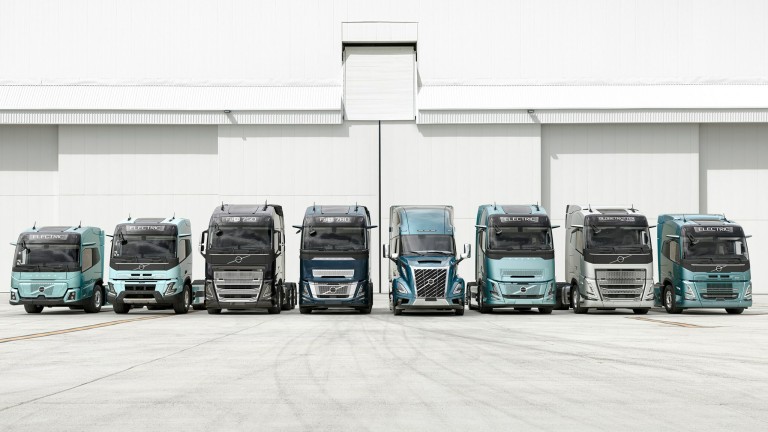When Volvo Trucks launched its new VNL heavy-duty truck platform to the North American market, it became part of a broader effort that helps to advance the company’s drive towards zero emissions.
The VNL was released in parallel with a new heavy-duty truck range for Europe and Australia, as well as markets in Asia and Africa. The new truck line features energy efficient models, including some running on electricity and alternative fuels, and is expected to reduce CO2 emissions. Those reductions help drive Volvo Trucks closer to its goal of a net-zero emission product range by 2040.
“This is a bold move – we are launching new best-in-class trucks that will set a benchmark for energy efficiency and reduction of CO2 emissions across the entire product range,” says Roger Alm, President of Volvo Trucks. “They have been designed to accelerate the journey towards our ambitious 2040 net-zero emission target, but they also offer higher levels of safety, productivity, and uptime for our customers.”
For North America, the VNL targets a 10 percent cut in fuel consumption, while also significantly improving safety. The new platform is going to provide a base for future models in coming years, using Volvo’s broad selection of electric and renewable fuel technologies, as well as more efficient combustion engines.
In Europe, Australia, Asia, and Africa, Volvo has introduced the FH Aero, optimized for energy-efficient heavy-duty transports. The new aerodynamic FH can be powered using electric, biogas, or diesel, and can cut energy consumption and CO2 emissions by up to five percent. These savings are on top of significant fuel-saving technologies introduced in recent years.
The launch also included Volvo Trucks’ first model developed only with a battery-electric powertrain, targeted for city transport. Volvo Trucks now has eight electric models.
“The wide range of trucks we are launching will enable our customers around the world to reduce their CO2 footprints, no matter where they are on their sustainability journey. The supply of green energy varies from market to market, and therefore as a global truck manufacturer, we need to offer our customers a range of decarbonization solutions – from efficient combustion engines that can run also on renewable fuels to electric powertrains, enabling the shift to fossil-free transports,” said Alm.
Volvo Trucks has built its commitment to decarbonization on three pillars – one that incorporates battery-electric and hydrogen-powered fuel cell electric solutions, as well as internal combustion engines running on renewable fuels.
Read the full article here

